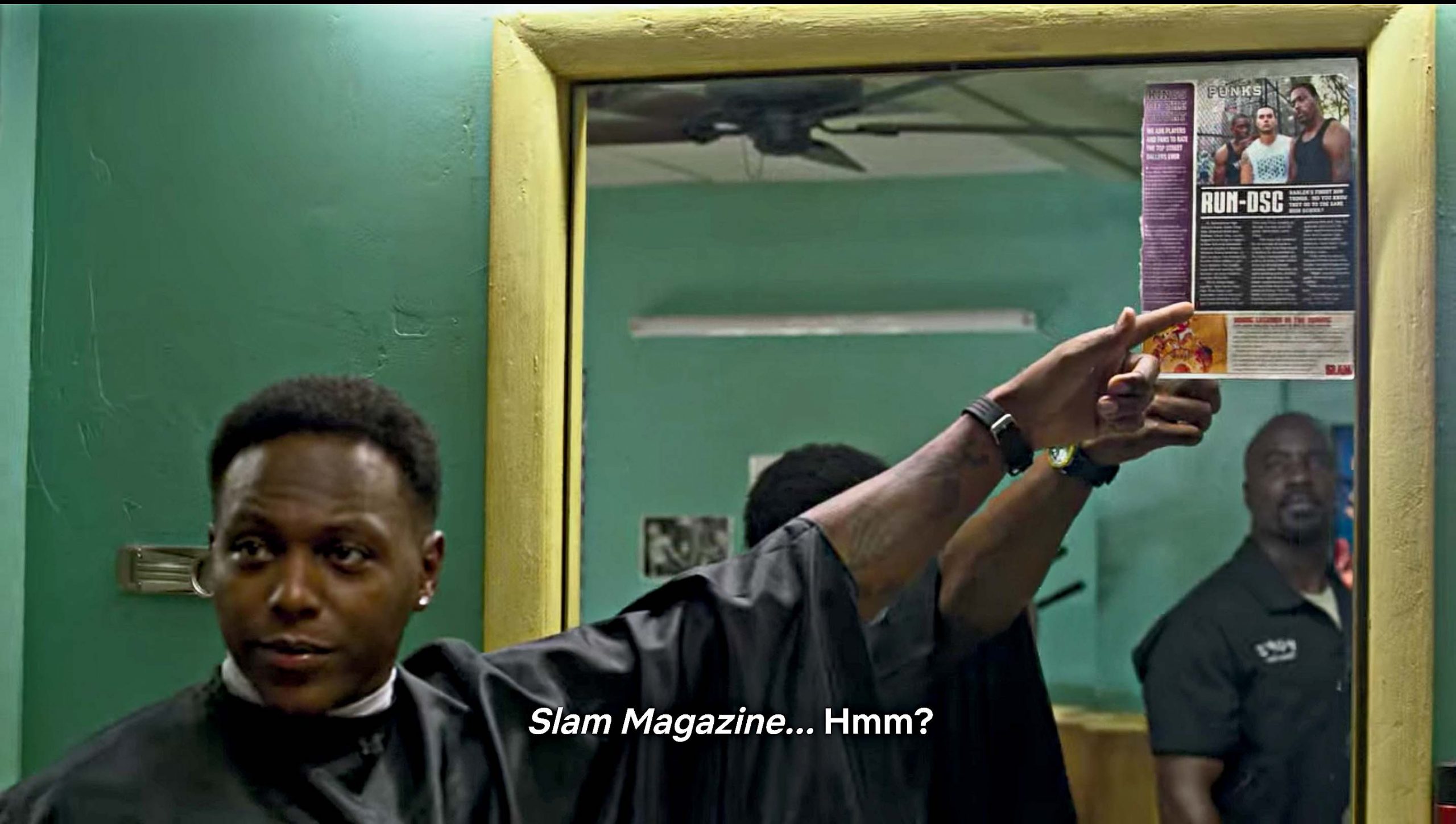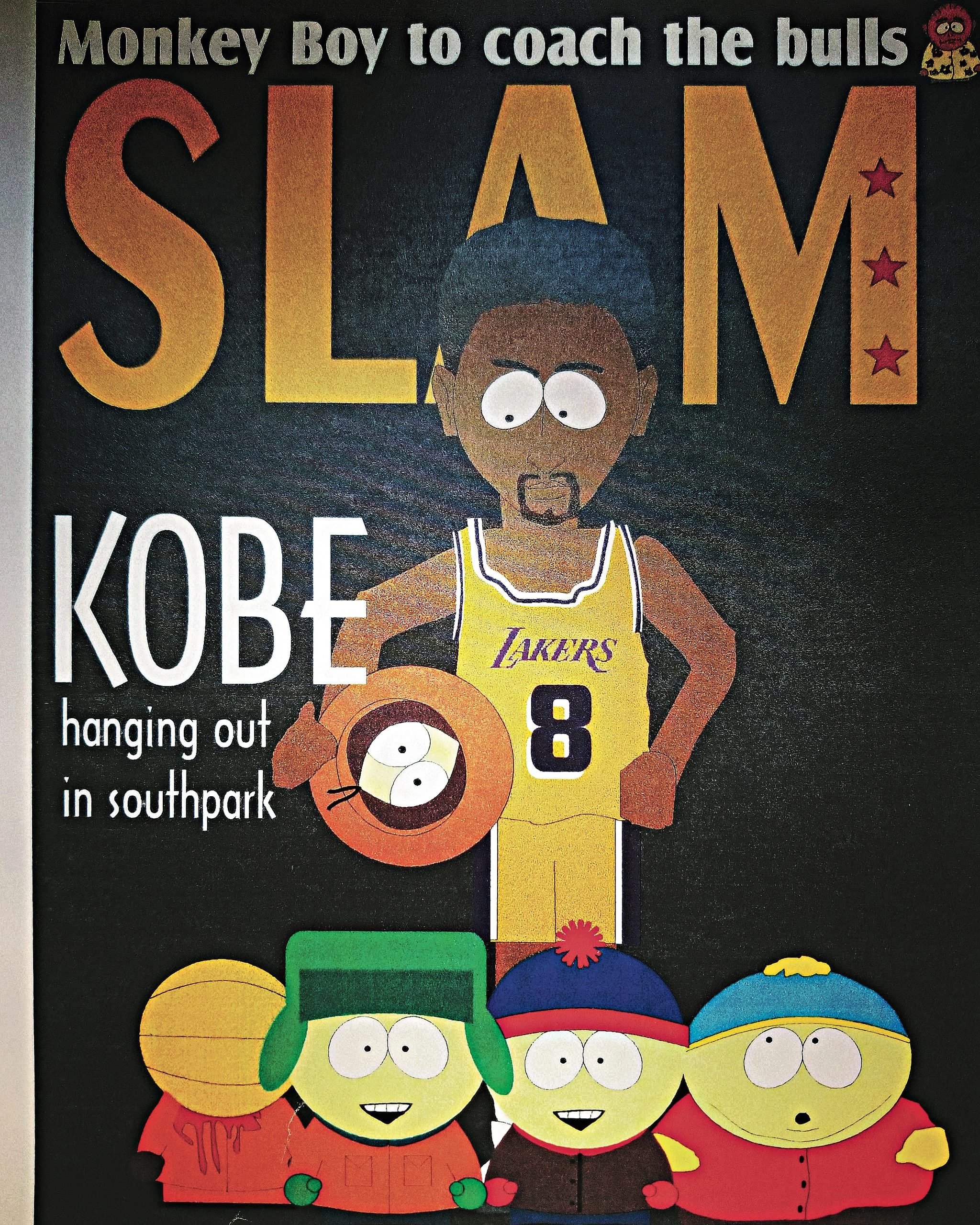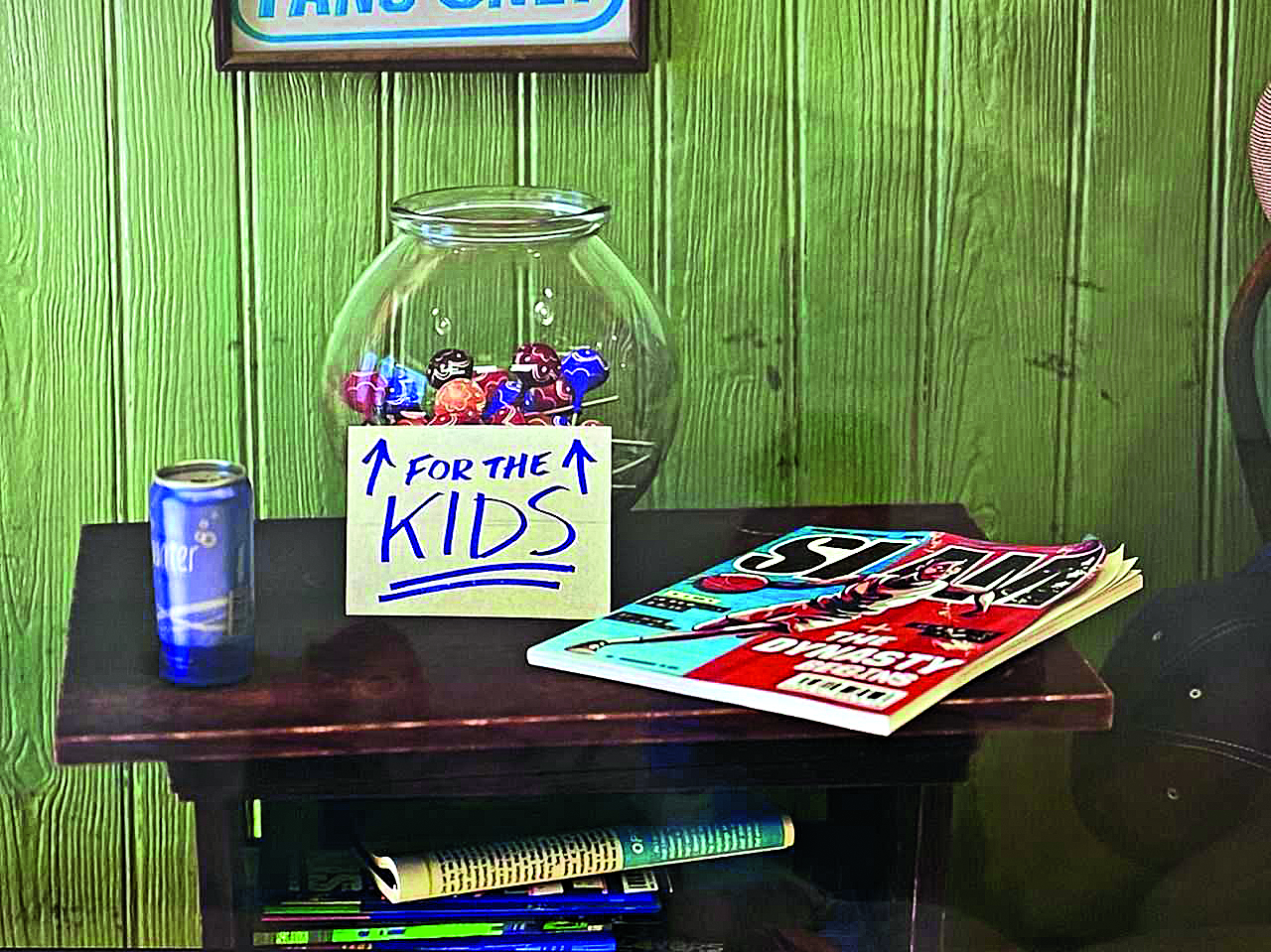Recent Hollywood blockbusters have got me considering options in alternate universes—Peter Parker-type ones, where I can see the Spidey meme lived out in real life. I’m not talking about the Metaverse, I’m talking about a temporary escape to the places on TV and movie screens that look more liveable than here. Where everyone is happy and I have secret superpowers that solve problems. All of them.
But before I decide where to call home, there’s something else to think about: How and where could SLAM exist in another dimension? That question has been answered, a few times over.
The biggest world, a universe really, where SLAM has a presence is the Marvel Universe. Luke Cage series creator Cheo Hodari Coker—who also wrote SLAM 24’s cover story on Kobe Bryant—showed some love to his SLAM Fam by including a fictional excerpt of the PUNKS column (our former HS section, now called The Come Up) in the first episode of the Netflix show. Fast forward to a scene in Pop’s Barbershop, and some of the article’s finer details can be seen in the freeze frame. I strained my eyes to read more about “RUN-DSC…”

You’ll also find SLAM in the world of comedy, thanks to Shea Serrano and Arturo Torres, the bestselling writer and illustrator of a ton of New York Times’ hits like Basketball and Other Things, who immortalized fictional Sixers fan Jim Halpert from The Office on a cover that I’d happily buy multiple copies of. There’s also a rumor going around the SLAM Dome that the publication’s fine literature can be found in STARZ’ Survivor’s Remorse. Any world with a character played by Mike Epps could be fun.
Back in 1998, two universes almost intertwined for real, for real. Filmmaker Spike Lee was working on his next masterpiece, He Got Game, and the film’s lead character, Jesus Shuttlesworth, was (at the time) about to be an even bigger deal than Ray Allen. By then, SLAM was kind of a big deal too. Spike shared SLAM’s love for the Knicks, the playful hate of Reggie Miller and understood that the magazine’s readers were his viewers. Our mutual audience would be flooding movie theaters to watch Denzel Washington rock a pair of Jordan XIIIs and battle Ray one-on-one. He also understood that (in the basketball world of the late ’90s) a SLAM cover was as big of a promo as anyone could get. SLAM Ed. Tony Gervino also saw it as a chance to pull just about any stunt necessary.
A plan was formed. Spike wanted a Jesus Shuttlesworth cover and SLAM was the only mag who could legitimately pull it off. The movie was in production, yet no one knew about it or Allen’s involvement, so the idea was to drop the Jesus cover as the ultimate April Fool’s prank in the spring of 1998. It would make history as the first SLAM cover featuring a fictional character. But it didn’t happen. An irritating leak meant that the element of surprise was gone and the concept was void.
While the Shuttlesworth cover may not have entered our galaxy, fans of Spike’s classic movie will have observed that “Coney Island Jesus” did in fact get a cover. It sits in pride of place above the TV of Jesus’ humble abode…and in Spike Lee’s office in Brooklyn.
Before emails and comment sections in social media, SLAM’s Trash Talk section was made up of physical letters. Not only would fans complain to the editors about stories, yell at readers who made up the previous issue’s Trash Talk and vent about their team’s losing streak, some would also submit carefully crafted pieces of art. Sometimes it was a sketch of an older cover, sometimes their favorite player, sometimes just their own version of the SLAM logo. One such submission came from a storyboard/design team based in L.A. who happened to be huge fans of SLAM. In writing, they requested back issues, t-shirts and even offered content suggestions. Those letters were from the team who worked on a little up and coming animated series called South Park.
The crew at South Park sent SLAM a few letters in the early days, but the one that really caught the staff’s attention was a reworked SLAM cover sent in the form of a greeting card. It featured Kobe’s Issue 24 joint, only with Kenny’s head replacing the Spalding ball under Bryant’s arm. They wanted to work it into a story that would be aired, but (in true South Park style) would take it a step further, with Kobe holding an AK-47.

World events in the spring of ’99 led to this cover never happening—it’s probably better that it didn’t—but we’ll always remember when Kobe was hanging out in South Park.
Seeing the magazine immortalized in animated form is wild. It was Christmas 2020 when we were once again reminded of that feeling. The pandemic had me, my wife and our 1-year-old daughter stuck in our tiny flat in London on Christmas Day. It wasn’t all bad. We bought some fancy food and drinks, didn’t need to travel anywhere and Pixar was premiering a movie called Soul that gave us something to look forward to. We loved the film and appreciated the finer details of the world that the lead character, Joe Gardner, called home.
One such detail was something I’d missed completely. It sat—of course—in the barbershop scene, on the table by the lollipops. A copy of SLAM. It was instantly recognizable as a rework of Issue 106, LeBron’s logo cover, with a fictional baller from the Pixar universe. No one at SLAM knew about it ahead of time, but everyone thought it was dope.

The movie was the work of Kemp Powers, a writer from Brooklyn who understood the cultural importance of SLAM. Soul’s release capped off a year marred with tension, yet Pixar’s world felt like a place of solitude.
These SLAM covers may be fictional, but they provided a hint of familiarity and were a nod of appreciation from the designers of alternate universes. For those of us who need to escape, even for a moment, they’re as real as it gets.